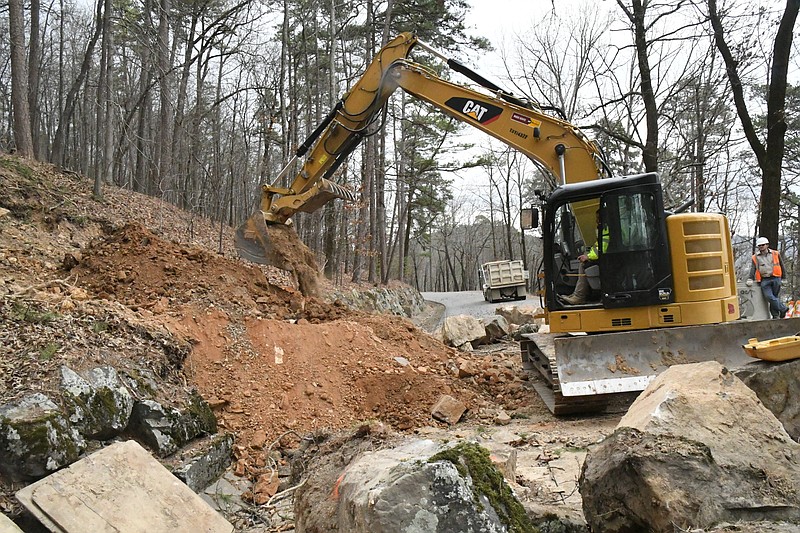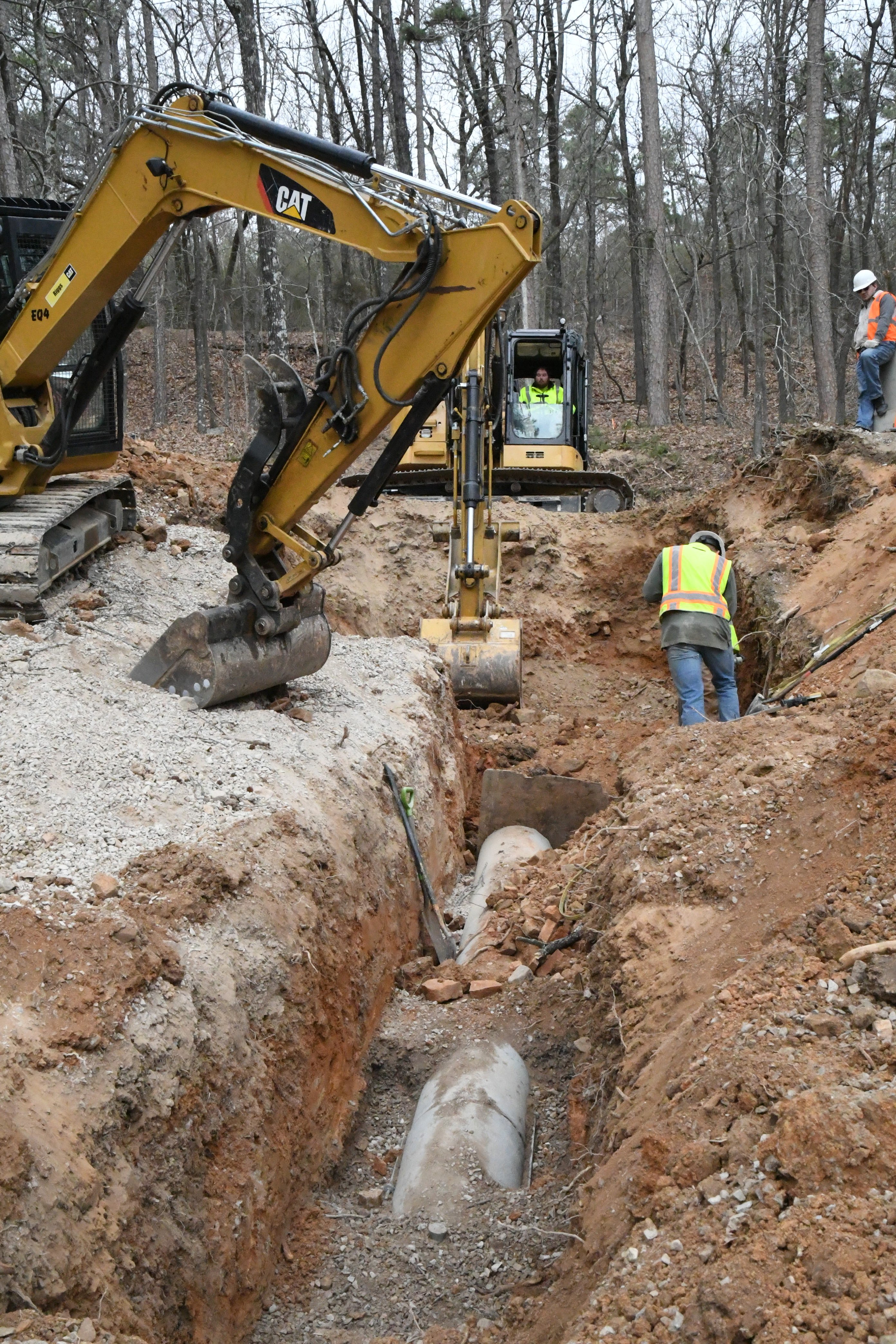A prescribed fire and a major drainage project have led to some closures in Hot Springs National Park over the past several days, including West Mountain Road, which closed Monday and is expected to reopen March 1.
The road closure is to allow construction crews time to safely dig up old drainage culverts and replace them with new ones.
"What we're doing right now is replacing a main drain on West Mountain and West Mountain Summit Drive," Ethan King, NPS landscaping supervisor, said. "So what that entails is replacing two drop boxes and then the main drain that drains all the waters off the gutter system on West Mountain Drive and then also West Mountain Summit Drive."
King said they noticed a failure on the section between West Mountain Summit Drive and West Mountain Drive, "where water was coming up out of the ground every time it rained, and then with further inspection, both the drain down through our property line, we found exposed broken pipe."
Video not playing? Click here https://www.youtube.com/embed/JuZUXFucZmY
The existing drainage culverts were likely installed in the park in the 1930s, he said, noting the new ones will be "reinforced concrete pipe" while the original "was clay tile pipe, and it's exceeded its life expectancy."
"We're anticipating (the new pipes) will last longer," King said, noting the old pipes were becoming a safety issue.
"Because it's undermining -- you can see the steep topography here -- and with the water undermining, it has the long-term potential of failing West Mountain Summit Drive, and then excessive water flowing across West Mountain Drive would, just the water alone, flowing across the road, would create a safety hazard, but it would also undermine the roadbed, as well," he said.
The erosion the water causes, King said, "was starting to undermine, not major undermining, in between the roads (but) we caught it in time to where we can correct any damages."
As the side of the mountain is being dug up, "there will be a short period of time where you'll see where we cut and replaced the drainage, but we're replacing the vegetation, so in a five-year time span, you won't hardly know that there was any work done here," King said.
The park also conducted a prescribed fire that was expected to start on Monday and end Tuesday, but the weather caused a delay to the second day of burning.
For hiker safety, Sunset Trail was closed from West Mountain Summit to Blacksnake Road on Monday.
Jeff Johnson, chief ranger, told The Sentinel-Record the reason for the burns is "to combat invasive species and to reduce fuel loads" in the parks which helps "prevent future wildfires."
On Monday, the park, with help from rangers from Buffalo National River, burned about 75 acres on Music Mountain. On Tuesday, about 66 acres on Sugarloaf Mountain were scheduled to be burned and on Wednesday, "some large debris fires (were) scheduled" near Whittington Park, Johnson said.
Both the Tuesday and Wednesday fires were postponed due to the weather, Johnson said, noting they "decided not to burn these as well due to high winds."
Johnson said all such burns are weather dependent and the park's proximity to the city makes prescribed burns "more complex" as "we're having to deal with suburban infrastructure," noting they don't want smoke to affect the city.
Johnson said it is unclear when they will be able to resume the burns, as the workers from Buffalo National River returned to the national river on Wednesday shortly after the burn was called off.
He said they will look for a time when the weather is clear and they can get enough staff to help with it.
"We don't have the manpower, we have to have help from Buffalo National River," Johnson said. "Our goal is to burn as much as we can, safely."

